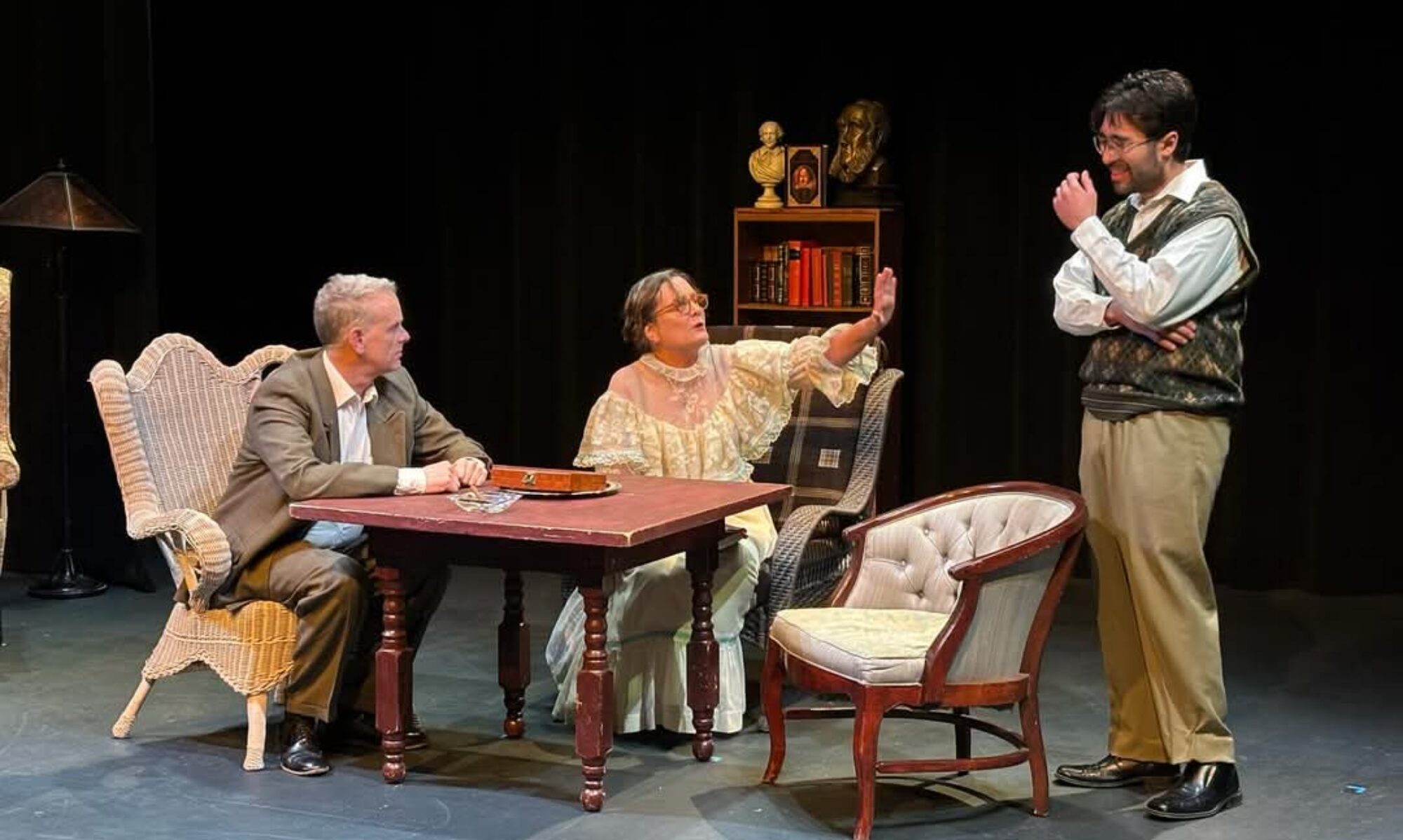John Webster’s The Duchess of Malfi was my favorite play of our thirteenth season. Webster had a profound tragic sense that only his older contemporary, Shakespeare, could match. This is from the program notes for our production.
“It seems an unaccountable pleasure which the spectators of a well-written tragedy receive from sorrow, terror, anxiety, and other passions that are in themselves disagreeable and uneasy. The more they are touched and affected, the more are they delighted with the spectacle; and as soon as the uneasy passions cease to operate, the piece is at an end. . . .The whole art of the poet is employed in rousing and supporting the compassion and indignation, the anxiety and resentment, of his audience. They are pleased in proportion as they are afflicted, and never are so happy as when they employ tears, sobs, and cries, to give vent to their sorrow, and relieve their heart, swollen with the tenderest sympathy and compassion”
Hume is one of the very few writers to discuss the question: Why is tragedy enjoyable? There is certainly no shortage of studies of tragedy itself; of its structure, its form, and its history; no shortage of discussions of the beauties of its principal instances. Philosophers, æstheticians and critics from Aristotle on have tried to tell us what tragedy is, how it is made, how it works, how it affects us. But scarcely anyone deals with what ought to be the central question: Why do we enjoy it: Why are certain spectacles of death and suffering fun?

And why are they fun of a particular kind? The appreciation of tragedy is not simply a grisly delight in watching others squirm, or the repellent fascination that may hold us when we witness the suffering of strangers. Horror films and monster films, movies that distribute death and dismemberment benefits to nubile adolescents may be enjoyable, but the enjoyment is clearly of a different kind. Janet Leigh’s death in a shower in Psycho (and the myriad imitations of it) may be powerful and moving, but simply not in the same way as the deaths of Cordelia, Desdemona, or Ophelia. Certainly the final stake through the heart (or whatever death is meted out to the monster) affords a satisfaction to the audience, but not the same satisfaction as the sight of Macbeth’s head. It is not that the movies go too far in their grisly displays or that the gore seems gratuitous.

Indeed, the complaint that in popular screen melodramas scenes of sex and violence are gratuitous, is mistaken in a very significant way. They are not gratuitous at all: they are the point of the whole work. It is the rest of a melodramatic or pornographic work—the plot, the characterization, the dialogue—which is gra-tuitous. These elements are, after all, merely framing devices or contexts or moral justifications for the important stuff: the spectacle of human bodies torn apart or brought together.

In tragedy violence really is gratuitous. In tragedy death is the context, the frame, for the important stuff: the spectacle of human minds and hearts and souls torn apart or brought together. Greek tragedy did without the gratuities entirely. The death always took place off-stage. Even in Renaissance tragedy, even in the Jacobean “tragedy of blood” (which includes The Duchess of Malfi ) the deaths are really quite bloodless, or ought to be. The leading cause of death for Shakespearean characters is a stab wound in some vital organ located eight inches upstage of the chest.

That is why the joking complaint that tragic (or operatic) heroes cannot die without first making a long speech (or singing an aria) misses the point. The speech is fundamental, the death is only the occasion for it.

Tragedy shows us characters who confront the most difficult and inevitable moments of life, usually the last moments, and deal with their terrors gracefully, heroically, beautifully. The pleasure of tragedy consists in watching that grace, that heroism, that beauty. It is not the final plunge into the grave that we want to watch, it is the posture and the dance at its edge. Tragedy is fun because the dance looks like a triumph.

Comedy is about failure, and a comparison with that form is instructive. What death is to tragedy, sex is to comedy. It is not the sex act itself that is important; that is as gratuitous in comedy as the death act is in tragedy. Comedy is about all the activity that leads to and follows from sex and procreation. Comedy is about courtship, and nesting, and territorial marking, and dominance, and plumage and all the other Darwinian business that happens at the foot of the bed. The strategy of comedy is to show us these things done, not triumphantly, but foolishly and ineptly, and to provoke our laughter.

It is worth noting that there is a genre of drama that shows us the same things done successfully. It is called romance, and romances are thought of as a kind of comedy when the focus is on the love story (The Tempest, for instance) or as a kind of tragedy when the focus is on the difficult triumph (The Winter’s Tale, for instance.) There must also be a fourth genre, if we think of the drama in this way, but there is no accepted name for it. It is the kind of play that deals with foolish or inept dying. Here the dance at the edge of the grave is not a triumph but a burgomask; a fish-slapping dance. Shakespeare’s most puzzling plays, Timon of Athens and Troilus and Cressida seem to fit here.

I have a strange thing in me, to the whichI cannot give a name, without it beCompassion.


